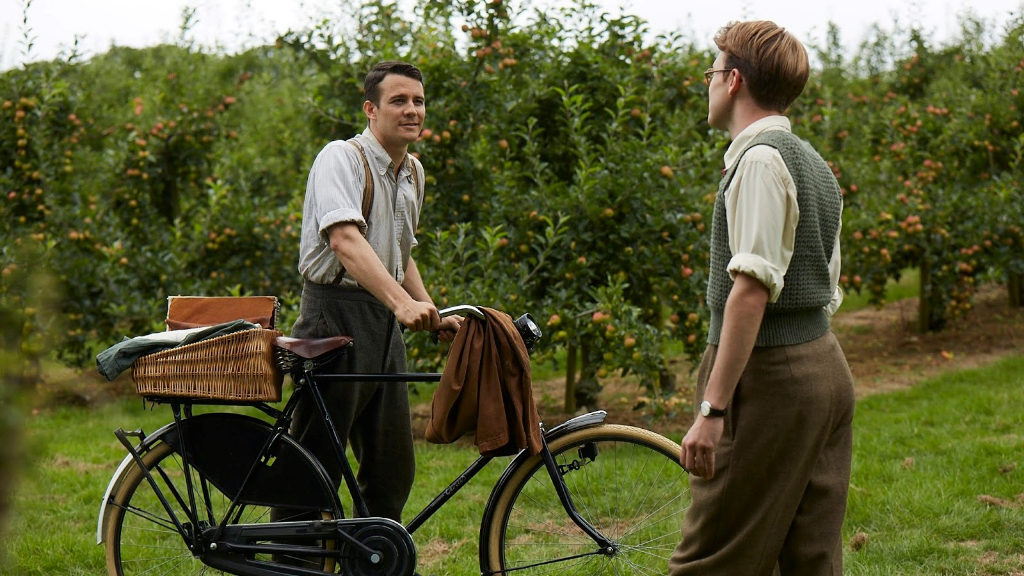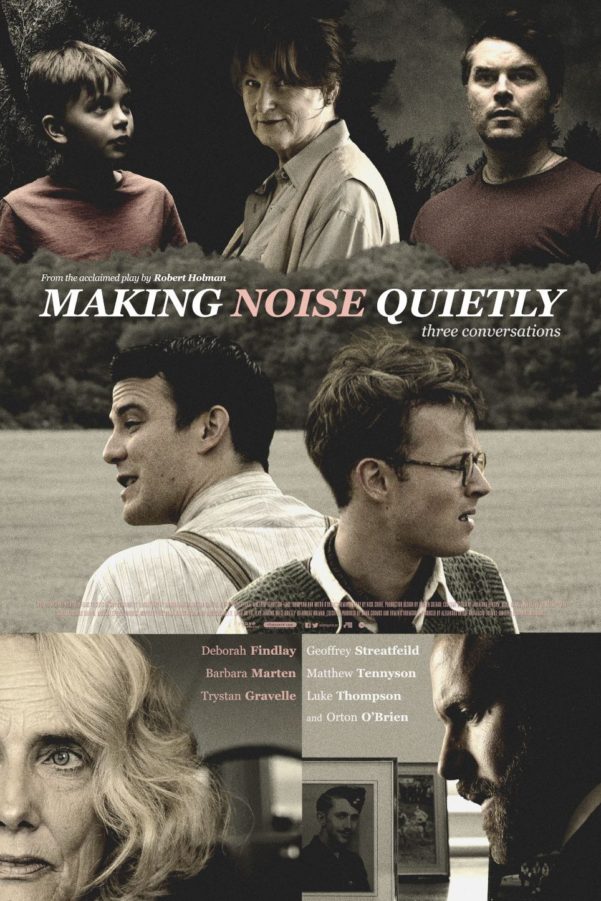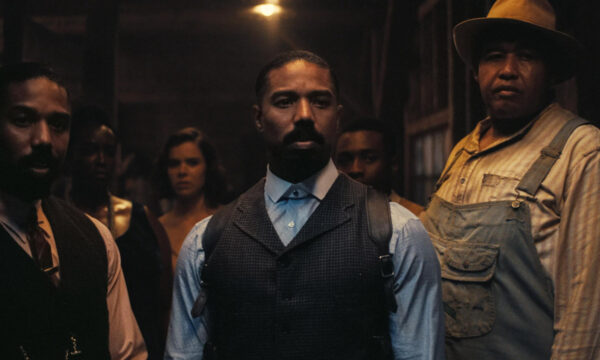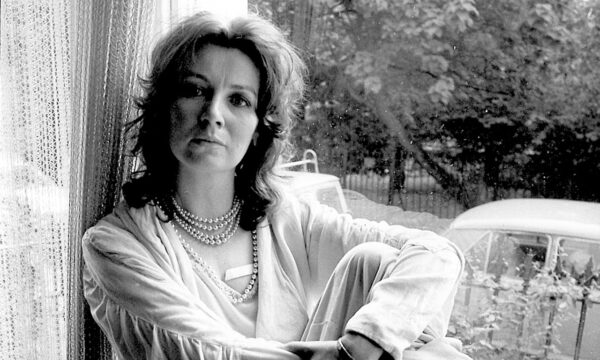Making Noise Quietly

A direct adaptation of Robert Holman’s contemporary stage play, Making Noise Quietly presents a series of dialogues between complete strangers, all living during and in the aftermath of war. Broken into three chapters titled Being Friends, Lost and Making Noise Quietly, the film follows various individuals who have seen their lives affected by conflict, exploring their attitudes towards the concept of war whilst also studying how together they can bring each other peace and reassurance.
Dominic Dromgoole’s onscreen conversion has a nuanced approach when it comes to handling the subject matter, following the script in a methodical manner and staying honest to the original text, taking time and care to develop each character and their experiences, whether they be in the Second World War or the Falklands. With just a limited cast required to execute the characters in the story, a wholly committed and talented ensemble is certainly necessary. Dromgoole has found such actors, with standout performances from the objector to war Oliver Bell (Luke Thompson) and openly homosexual artist and writer Eric Faber (Matthew Tennyson), who provide particularly memorable exchanges as they witness the effects of the Second World War in 1944 Kent. Likewise, in a more powerful and complex tale, Deborah Findlay and Trystan Gravelle entice the viewer into an emotional and traumatising journey down memory lane as an aggressive former soldier struggles to care for his mute stepson in Germany’s Black Forest.
It’s evident that Making Noise Quietly makes for a riveting and encapsulating stage play, with each act proving fresh and engrossing as they address each topic and focus with the running theme of war interwoven between them, but the real question is how well do the drama and its script translate from stage to screen? One challenge that directors are often faced with is finding that happy balance between pacing and dialogue when bringing a visual theatrical spectacle to the cinema. Adapted into a different art form in a similar field, the movie tends to fall victim to still feeling the need for characters to say what they see and how they feel, much like they would on stage, rather than using the camera to do the work. There is little overarching narrative to the film, with a pianist tinkering on the ivory keys of a piano in a barn breaking up each story with little further explanation as to why, and one can’t help but feel that a little more creative freedom over the project may have resulted in more fluidity as the piece progresses.
Unfortunately, it’s this matter alone that is the downfall of this feature, made more frustrating by the beautiful scenic countryside that envelops the screen in a cinematic splendour, washing the warmth and authenticity of the environment over the viewer as summer days roll into seashore views and dense forests. All the while, Stephen Warbeck’s wonderful classical score floats effortlessly over the top, retracting to allow us to focus on the dialogue and characters at just the right moment. Were the script and pacing to be translated and edited on screen a little more smoothly and comfortably than they ultimately have been, Making Noise Quietly really could have terrific feature-showcase potential. It just needs to be harnessed.
Guy Lambert
Making Noise Quietly is released in select cinemas on 19th July 2019.
Watch the trailer for Making Noise Quietly here:























Facebook
Twitter
Instagram
YouTube
RSS